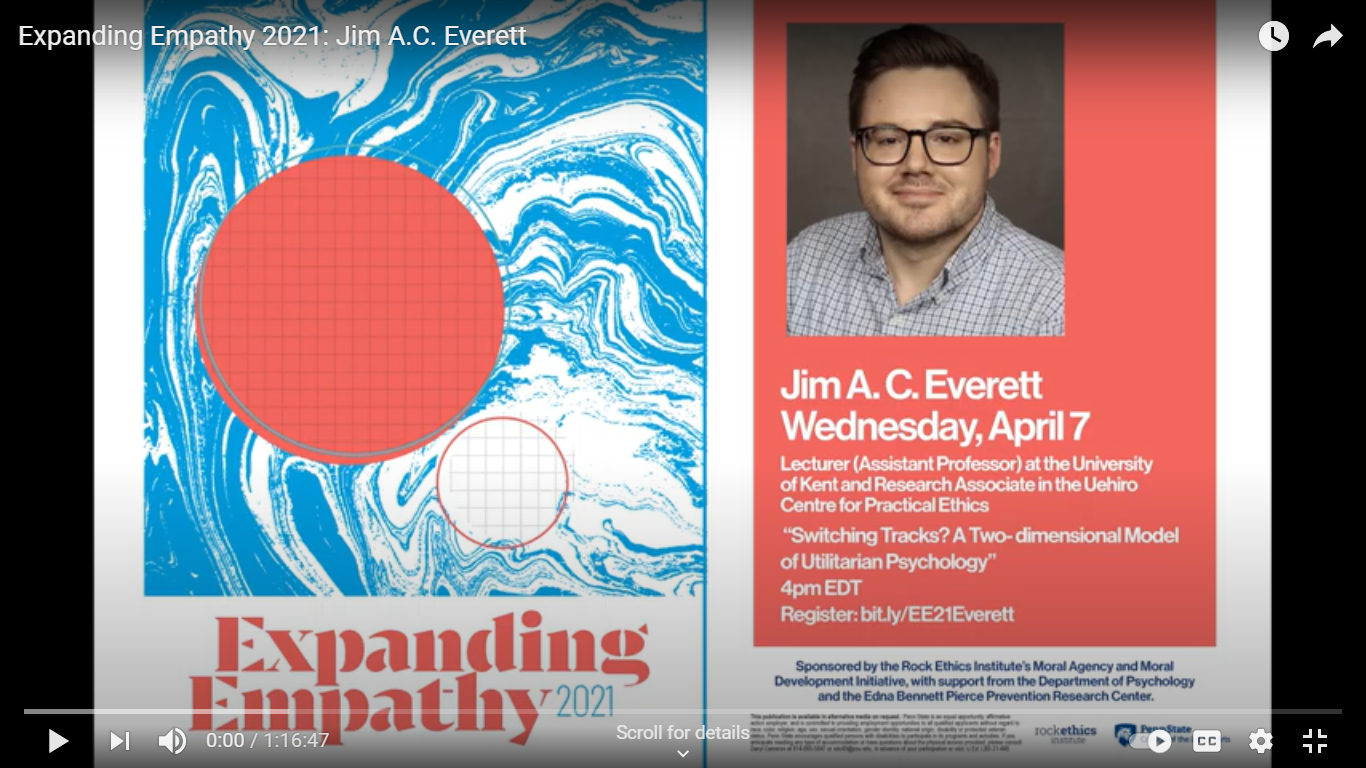Jim Everett gives the penultimate lecture in the ‘Expanding Empathy’ series for the Moral agency and Moral development initiative at the Rock Ethics Institute in Penn, writes Tanya Sengupta
“Imagine you’re going on a walk one day and you pass a shallow pond and notice a child falling in. Do you have the obligation to rescue the child?”
Most people say ‘yes’ to this scenario, as explained by Dr. Jim Everett. However, when he changed the situation to a scenario where you would be saving a child from malnutrition in a foreign country by donating clothes the answer was reversed. Dr. Jim Everett panelled the final lecture of the ‘Expanding Empathy’ series, as part of the Moral agency and Moral development initiative at the Rock Ethics Institute at the Penn State University.
The series aims to bringing together perspectives on empathy and moral decision-making from researchers from around the world, “providing a window into understanding when, why, and how people decide to have empathy and concern and help other people”.
Dr. Jim Everett , Assistant Professor at the University of Kent and a Research Associate at the University of Oxford focuses on moral judgment perceptions of moral character and parochial altruism. Throughout the lecture, Jim demonstrated how his work is interdisciplinary with traces in social psychology, philosophy, behavioral economics, and evolutionary theory.
With the child rescuing situation described above, Jim talks about how the theories of utilitarianism state that there is no meaningful difference between saving the child in the pond and in a foreign country from malnutrition. Peter Singer, an influential philosopher said that we are all people in the situation of the person passing the shallow pond. We all have the ability to save the lives of people who would otherwise die.
After explaining this Jim described the Trolley Situation of people being presented with the moral decision to save one life or many. Utilitarianism is a theory of morality, which advocates actions that provide happiness or pleasure. Both the pond and the trolley situation help depict the point that Utilitarianism classifies both these cases as having no ethical meaningful difference. The lecture continues to talk about the context of these abstract experiments within Moral Psychology through sacrificial dilemmas. Did you know that there are two systems that support moral decision-making? The automatic and emotionally grounded one favours “deontological” decisions while the other deliberative reasoning supports utilitarian decisions (Dual Process Model, Greene et al, 2001).
The roadmap for the rest of Dr. Everett’s lecture was explaining key dimensions of utilitarianism, looking at minimal evidence of generalisability between dimensions, and discussing the direct consequences for social perception.
For more content from the lecture – be sure to check out the recorded Youtube video here.

